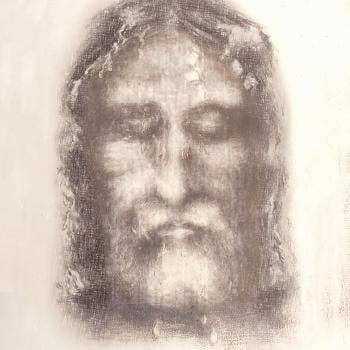"By what feelings, then, was I animated? For it was in truth too shameful; and woe was me who had it. But still what was it? We laughed, because our hearts were tickled at the thought of deceiving those who little imagined what we were doing, and would have vehemently disapproved of it. Yet, again, why did I so rejoice in this? What I stole pleased me not, but rather the act of stealing; nor to have done it alone would I have liked so well, but the company of others. Oh Friendship too unfriendly! Thou mysterious seducer of the soul, thou greediness to do mischief out of mirth and wantonness, thou craving for others' loss, without desire for my own profit or revenge. When they said, ‘Let us go, let us do it,' we were not ashamed to be shameless."
Columbia University's Andrew Delbanco notes that the force of Augustine's writing is "its flustered confusion before the insubstantiality of sin, before the mastery of a nameless desire somehow stronger than shame." Augustine envisions evil as misshapenness, as "a prideful embroidering of God's spun yarn." "Who can unravel that twisted and tangled knottiness?" Augustine asks. "It is foul. I hate to reflect on it. I hate to look on it. Thee do I long for, O righteousness and innocency, fair and comely to all virtuous eyes, and of a satisfaction that never palls! With Thee is perfect rest, and life unchanging. He who enters into Thee enters into the joy of his Lord, and shall have no fear, and shall do excellently in the most Excellent. But I sank away from Thee, O my God, and I wandered too far from Thee, my stay, in my youth, and became to myself a barren land."
Where lay Augustine's hope? God, omnipotent as He is, could not destroy evil (itself being nothing) without destroying in some way the good from which it derived its power. You can't kill the parasite without affecting that on which it feeds. You have to cut off the food supply. This God did through the redemptive power of Jesus. Christ's death and resurrection provided for the recovery of humanity in its untainted form. He who had no sin (being perfectly good) effectively lured the parasite away and killed it along with Himself on a cross. The fact that the Son of God had to die in order to redeem us from evil and sin attests to its truly hideous and destructive nature. Thus Paul implores you in Romans to "not even think about how to gratify its insatiable desires." Avoid every form of evil, he warns in Thessalonians. It will eat you alive. Instead, "clothe yourself with the Lord Jesus," "put on Christ," and thus effectively starve that goodness-sucking parasite.
"How much Thou hast loved us, O good Father," Augustine prayed, "Who hast spared not even Thine own son but delivered him up for us wicked people. How thou hast loved us, for whom He who thought it not robbery to be equal with Thee became obedient even unto the death of the cross, He who alone was free among the dead, having power to lay down his life and power to take it up again, for us he was to Thee both Victor and Victim. For us he was to Thee both Priest and Sacrifice, turning us from slaves into Thy sons being Thy Son and becoming a slave. Rightly is my hope strong in Him."





